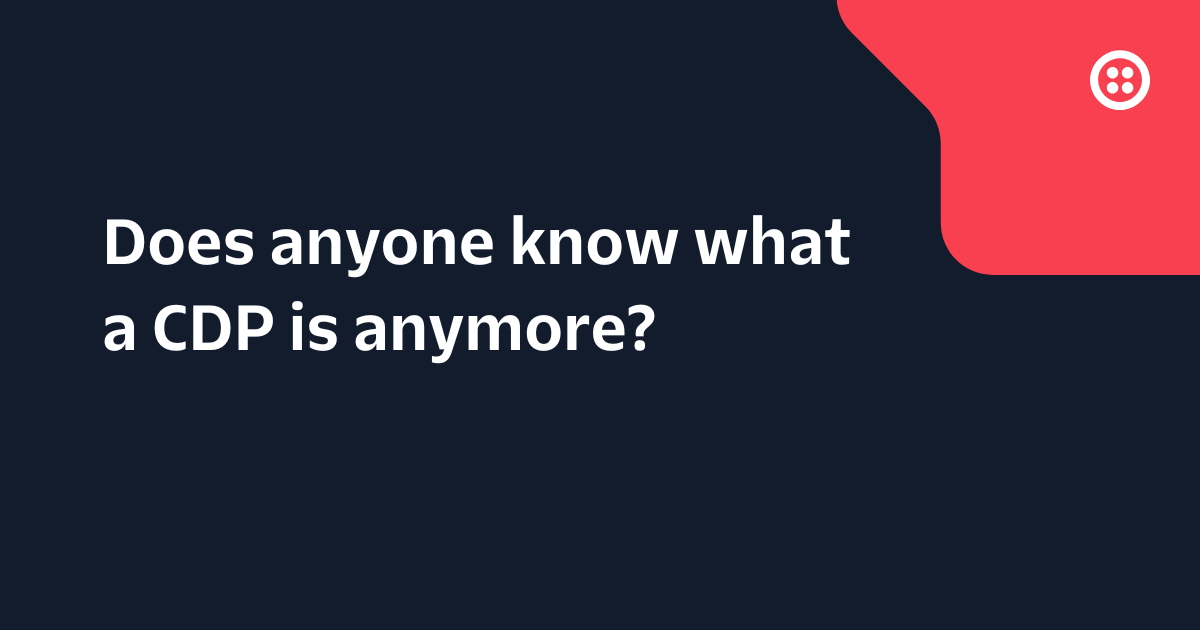Twilio Startup Labs Founder Spotlight: Chris Dolinski, Vibehut
Time to read: 5 minutes
Company Name: Vibehut.io
Founder Name(s): Chris Dolinski
LinkedIn: Vibehut Company Page
Industry: Software, Video
Stage / Funding: 1M USD
Location: Toronto HQ, Global Team, Delaware C Corp
This is a post in a series of interviews with startup founders who have worked with Twilio Startup Labs, a program for developers at early-stage startups to learn how to build, prototype, and demo on Twilio. We had the pleasure of working with Chris Dolinski on their startup Vibehut.io.

Describe your startup journey in 160 characters or less (the original length of a text message)
Vibehut took the building block of a video call and evolved it into a platform for professionals, companies, and communities. Its branded video rooms are used to host calls, share resources, sell products, create content and monetize. Having a Vibehut room is the virtual equivalent to having an office on main street. People know where to find you, can see that you’re available and can stop by when they have an appointment or would like to talk.

Why did you start your company?
I started Vibehut because I had sold my previous company (Co-founded the Canadian version of Carvana, Clutch.ca) and was building projects around the opportunities I came across. I was messaging a number of global thought leaders online and quickly realized we were sharing ideas but the value of conversation wasn’t at the same level it was in real life. Vibehut was born as a platform that connects great people through video calls.
“In real life” is the best. The dinners and events create an environment for talking about ideas, trying new experiences, and collaborating. Technology has drastically changed our world recently, and tooling needs to keep up. Most of us take it for granted, but high speed internet, programmatic video calls, and an online reputation means that remote work is the default and talent is burgeoning globally. COVID-19, although terrible, put boosters on the acceptance of the virtual world, and socializing has evolved. Deals now move fast, and it’s hard to be in Zurich, Toronto, and Hong Kong at the same time. Video calls lack many of the benefits of in-person, but they win in efficiency and speed.
Vibehut stepped up to provide discoverability and a way to be a part of the web’s active community.


How are you building on Twilio? E.g., How do you use email, SMS, WhatsApp, Verify, etc. to communicate with your customers?
Vibehut is building on Twilio extensively and picked the APIs needed as a Michelin star chef picks their ingredients:
- SMS for notifications;
- Video for 1:1 and group calls;
- Composition to download in TikTok, YouTube, formats Spotify;
- Storage for downloading and displaying the recorded video.
From these primitives, Vibehut has extended to offer our customers:
- PWA and browser accessible video calls;
- branded video call rooms with a unique persistent URL;
- global discoverability;
- room and user call counts and analytics;
- scheduled and monetized events;
- auto-organizing community calls;
- user profiles, linked to their other socials;
- direct messages, group messages with conversational AI support;
- AI agents and aggregated resources to provide asynchronous support to rooms.

What has the benefit or commercial impact been for your business since using Twilio?
Twilio has played an enormous role enabling Vibehut’s commercial impact and offering. Vibehut has hosted calls from people in 141 countries in the last 30 days. It has been the platform of choice for the virtual world. It’s possible and common to speak to someone in Africa, North America, South America, Asia, and Europe on the same day. Notably, Vibehut’s design makes it a preferred choice for instant sales calls and scheduled calls for virtual legal office hours, IETLS English speaking practice, founder community discussions, and podcast recording. Although I’m the founder, I’ve had 2913 calls in the last 2 years. I see it as building up conversational equity. An asset that I can point to saying, I’m happy to listen, talk, collaborate and provide feedback if asked.
By building on Twilio, what has the impact been for your customers?
Building on Twilio has been a boon for our customers. Twilio offers a robust API providing a reliable service for video conversations, notifications, and content creation. It has supportive documentation and excellent reporting to identify and track outages. These fundamental building blocks provide the confidence we need to pick Twilio as a service provider.
See the article here that Byvi published about our IELTS video room and the impact it is providing for people practising to learn English.
Are there any future Twilio Products that you plan to integrate into your startup, and if so, why?
We are in the process of implementing Mux, previously Twilio Live (suggested Mux). We continue to explore the composition API and have spoken directly with the team about our customer needs there. Our dream is to have a Twilio video call, and on completion it automatically generates viral clips with captions. We already provide YouTube, TikTok, Spotify and ChatGPT call transcripts for our recorded videos.
Have you enjoyed Twilio Startup Labs? And if so why?
Twilio Startup Labs has been great to be a part of. I would like to thank both Brandon Leen from Twilio Ventures and Frank Yaw-Owusu from Twilio Startups for their time.
Do you have a recording of your DEMO and how you are using Twilio that you would like to share?
What is the best piece of advice you would give to founders who are looking to build on Twilio?
The best piece of advice I would give to founders looking to build on Twilio is to get started and involve others. Whether you’re building as part of a team or an individual, it always helps to have a handle on how things work.
When you see a new tool or API offered by Twilio, explore it, make a small app with the API yourself. The building blocks needed to build a billion dollar company are already available from the thousands of enterprise APIs available. They are waiting for you to piece them together, brand them and market your products and services.
What excites you most about being a founder?
What excites me most about being a founder is that I get to visualize what could exist, decide what we want to work on, and then bring it into existence. People have always been tool builders, it’s the best time in human history to build something of magnitude.
Screenshots



Thank you for reading. If you would like to read more Twilio Startup Labs Founder Spotlight interviews and learn how others build, prototype, and demo on Twilio, please check out the series of articles here.
For questions about Twilio Startup Labs or to learn how to get involved, please contact Frank Y. Owusu at fyawowusu@twilio.com.
To find out more about how Twilio supports Startups, check out Grow with Twilio.
Related Posts
Related Resources
Twilio Docs
From APIs to SDKs to sample apps
API reference documentation, SDKs, helper libraries, quickstarts, and tutorials for your language and platform.
Resource Center
The latest ebooks, industry reports, and webinars
Learn from customer engagement experts to improve your own communication.
Ahoy
Twilio's developer community hub
Best practices, code samples, and inspiration to build communications and digital engagement experiences.


